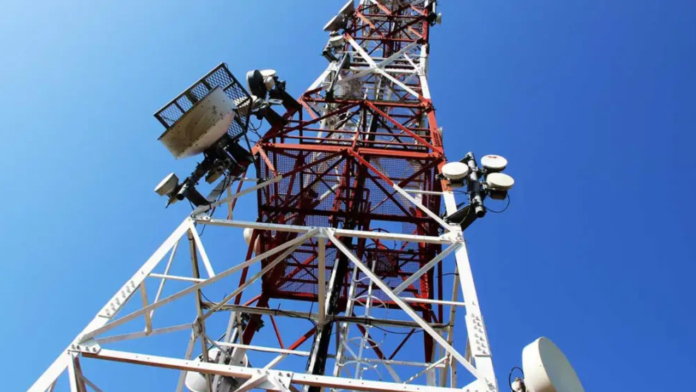Information, communication, and technology firms, including telecommunications companies in Nigeria, owed Deposit Money Banks ₦1.69 trillion as of September 2024 amid telcos’ calls for a hike in the tariff payable by subscribers for data and voice calls.
Figures obtained from the Central Bank of Nigeria’s quarterly statistical bulletin indicate that the indebtedness of the telcos and the other ICT firms represents a year-on-year decrease of ₦68.04 billion, or 3.9 per cent, compared to the ₦1.77 trillion owed in September 2023.
The decline reflects the impact of the CBN’s repeated interest rate hikes, which has tightened monetary conditions and discouraged borrowing within the sector.
Month-on-month, however, there was a slight increase of ₦31.61 billion, or 1.9 per cent, from the ₦1.66 trillion recorded in August 2024.
The year-on-year analysis shows that credit to the ICT sector experienced mixed trends throughout 2024.
In January, credit stood at ₦2.47 trillion, marking a significant increase of ₦1.23 trillion, or 99.3 per cent, compared to ₦1.24 trillion in January 2023.
However, by February, credit had declined to ₦2.35 trillion, though it still represented an 88.4 per cent increase year-on-year, with a difference of ₦1.10 trillion compared to February 2023.
By March, the pace of borrowing slowed further, with credit falling to ₦1.67 trillion. This represented a year-on-year increase of ₦385.24 billion, or 30 per cent, compared to March 2023.
The trend continued into April, where credit remained relatively stable at ₦1.66 trillion, up ₦241.90 billion, or 17 per cent, year-on-year.
In May, credit rose slightly to ₦1.68 trillion, reflecting an ₦308.38 billion, or 22.4 per cent, an increase compared to the same period in 2023.
From June, year-on-year figures began to show a decline. Credit to the sector dropped to ₦1.64 trillion in June, representing a decrease of ₦81.59 billion, or 4.7 per cent, compared to June 2023.
July saw a further decline to ₦1.69 trillion, down ₦48.93 billion, or 2.8 per cent, from July 2023.
In August, the decline deepened, with credit falling to ₦1.67 trillion, a reduction of ₦107.37 billion, or six per cent, compared to the ₦1.77 trillion recorded in August 2023.
By September, the year-on-year decrease of ₦68.04 billion drew attention to the cautious borrowing stance adopted by firms in response to persistent economic uncertainties and high interest rates.
The decline in credit to the ICT sector throughout 2024 can be attributed to the CBN’s tight monetary policies, which have raised the cost of borrowing.
The apex bank has consistently hiked interest rates in a bid to curb inflation, with its monetary policy rate standing at a record high for most of the year.
CBN Governor Yemi Cardoso, who assumed office in September 2023, has overseen six interest rate hikes in 2024.
In February, the Monetary Policy Rate increased by 400 basis points, moving from 18.75 per cent to 22.75 per cent, the largest single hike of the year.
This was followed by another increase in March to 24.75 per cent. In May, the rate was raised again to 26.25 per cent, and by July, it reached 26.75 per cent.
The tightening cycle continued with an increase to 27.25 per cent in September, and the most recent hike in November brought the rate to 27.50 per cent.
These cumulative increases, totalling 875 basis points, are part of efforts to combat inflation and stabilise the economy.
This has had a direct impact on the borrowing capacity of firms, particularly those in capital-intensive sectors such as ICT.
Also, macroeconomic challenges, including exchange rate volatility and rising operational costs, have further constrained borrowing activity.
Despite these challenges, the ICT sector remains a critical driver of Nigeria’s economy, contributing significantly to Gross Domestic Product growth and employment.
Activities in the ICT sector contributed 16.35 per cent to Nigeria’s real GDP in Q3 2024, a decline from the 19.78 per cent it added in the previous quarter.
The National Bureau of Statistics disclosed this in the Q3 2024 GDP report.



